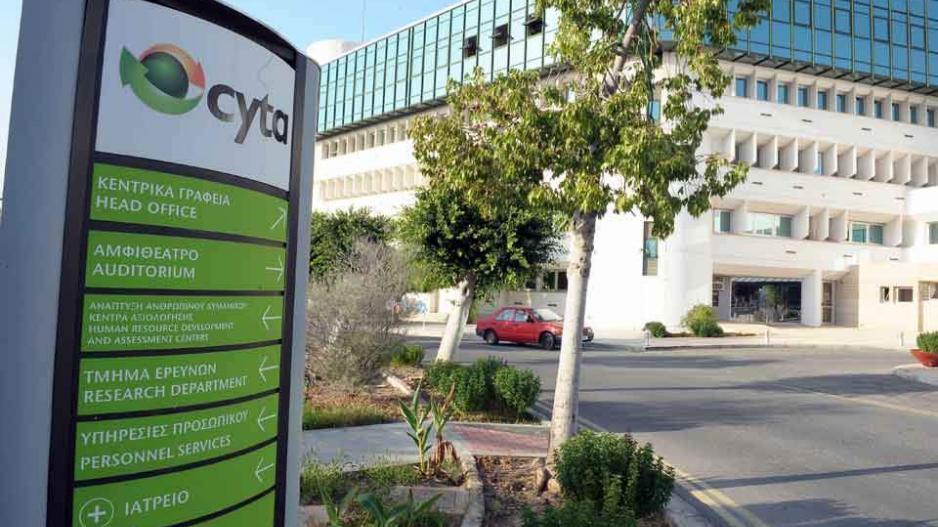With its profits continuing to rise on the back of containing expenses, state telecoms operator Cyta will spend €500,000 to hire consultants to advise on its privatisation process and the search for strategic investors.
According to a government decision, Cyta is required to explore all options available for privatising their business, from selling off shares, creating privately owned subsidiaries or partial privatisation of the Cyprus Telecommunications Authority through the recruitment and selection of a Strategic Partner or Investor.
Despite privatisation or at least partial de-nationalisation, appearing to be a one-way street for the telecom company as it continues to bleed market share, economists say that now is the time for Cyta to take the bold step as its future as a quasi-state company is blurry.
Cyta’s privatisation has been on the table from the turn of the century, with every passing year seeing the government making plans to denationalise the authority, with special reference in the budget submitted to the Parliament.
Fiscal Council chair Demetris Georgiades said that further delays would see Cypriot taxpayers bailing out another failed state enterprise, or even worse weeping over its ruins as in the case of the late Cyprus Airways.
This despite arguments portraying the privatisation of the authority as a bad move as it is a company which has just announced its highest profit in recent years.
“However, the profitability of the organisation was due to cutting down on costs, not on expanding its clientele,” argued Georgiades who noted that potential investors wanting to buy Cyta will be looking at the market share the company possesses.
Georgiades noted that Cyta’s mobile phone market share is dropping dangerously year-by-year and will find itself with a small percentage, unable to attract serious investors.
Although Cyta still controls more than half of the market, it has been losing grip at a speedy pace over the past few years.
Cyta has 40.5% of the mobile phone contracts market with internet access, EPIC has 47.7% and Primetel 11.9%.
“While in 2013, the Cyprus Telecommunication Authority had the lion’s share of the market with almost 70%, and six years later it has come close to dropping below 50% with competitors coming dangerously close,” said Georgiades.
He said the Fiscal Council aims is to protect taxpayers from another disaster which will set state finances back as they will have to start bailing out another failed company.
He noted that Cyta may find itself faced with unexpected challenges, such as the lifting of limitations on EU companies to operate outside their base country.
“Already new regulations allow subscribers of companies registered in other European Union member states to use their phones for four months before being disconnected and prompted to become subscribers of a local telecoms company,” said Georgiades.
He argued Cyta will also be faced with challenges from EU directives which encourage the installation of free wi-fi spots in cities across the EU, which will be a blow to all telecom companies, as consumers will be able to use mobile phone applications to make their calls.
One-way street
Cyprus University finance professor, Sofronis Clerides said although privatisation will come with a baggage of negative effects, privatising Cyta seems to be a one-way street.
He noted that negative effects may result from the fact that a private company will not have the best interest of the country’s citizens at heart, especially if we are talking about a foreign investor, but profit.
He added that another negative side-effect would be that a large portion of the profit will be leaving the country.
However, as he added, the government can take measures to minimise negative effects, by including some safety valves in the deal such as coverage and price monitoring.
Clerides believes privatising Cyta is a one-way street as it needs a more flexible operating system.
“As Cyta is partly state-owned, the company falls under the legal framework governing state companies. This limits the company’s flexibility and competitiveness.”
He added that from the moment Cyta is part of a free market it should be allowed to be as flexible as private companies, which would require it to come under a private sector legal framework.
Clerides said that privatisation for the sake of privatisation should not be the goal, rather the structure of the company should facilitate the goal.
“We should stop clinging to political ideologies and rather agree on what the end goal is, which should be to render an organisation which will facilitate competition towards the benefit of consumers,” said Clerides.
He explained that not only will Cyta have more flexibility in the market but could also bring about an upgrade in services offered.
That is where the state should step in to make sure that the investors taking over will have the know-how and the technological means to upgrade services offered.
According to guidelines given to the authority, the investor should be in a position to modernise and upgrade the Cyprus Telecommunications Authority by developing and transforming it into a more flexible and competitive telecoms firm.
The €500,000 set aside in the budget will be used for calls for tenders to invite independent specialised financial and legal consultants to look into the various options and come up with a roadmap.
Meanwhile, opposition parties have said they will either to vote against Cyta’s intention to set aside a pool of money for consultancy on its privatisation options or withhold that part of the authority’s 2020 budget.
As a semi-government organisation, Cyta requires parliamentary approval for its budget.
Opposition parties argue that it would be a wrong move on behalf of the government to privatise a “profitable organisation”.
Cyta posted its highest profit rate last year earning EUR 60 mln after-tax in 2018.
According to Cyta chair Rena Rouvitha, the organisation is also expected to see an increase in revenue in the coming years.
While Cyta aims to keep costs below 2019 levels, the telecoms authority’s 2020 budget foresees revenue of €349.1 mln compared to revenue of €340.5 mln in 2019.
The increase is attributed to revenues from telecommunications services projected at €343 mln from €331.5 mln this year. Budget expenditure for 2020 amounts to €306.5 mln from €310.5 mln in 2019.
In a speech before the House Finance Committee, Rouvitha argued that trends show a stabilisation of their share in all markets it is active in.










